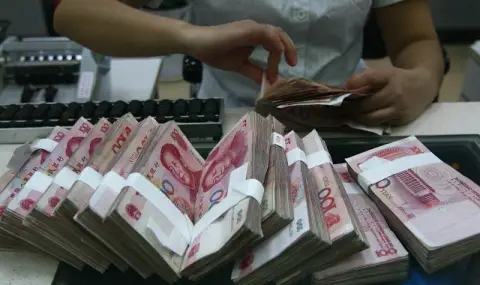Nearly 90% of Russian imports are now settled in rubles and Chinese yuan. Western sanctions have forced importers to abandon dollars and euros, but they complain of difficulties. "The yuan is going badly,", admits one of them.
About a month ago, the US Treasury Department imposed sanctions on the Moscow Stock Exchange. Already in June, the Russian Central Bank announced that it was switching to exchange trading in Chinese yuan - at that time the share of the Chinese currency in trade was 54%. The ruble exchange rate strengthened against the Chinese currency in June and continued to hold at the same level. The same stability is demonstrated by the over-the-counter exchange rate of the ruble against the euro and the dollar, but it is determined by the Russian Central Bank according to a new non-transparent methodology. DV sought the opinion of entrepreneurs, who told how payments in yuan are going and what difficulties they encounter in trade.
About 90% of imports are paid in rubles and yuan
Sanctions against the Moscow Stock Exchange, which made it impossible to trade in dollars and euros, complicated the foreign trade activity of Russian entrepreneurs, but did not stop it. Many of DV's interlocutors, who wished to remain anonymous, said that most payments are made in yuan. An employee of a logistics company said that after the start of the war in Ukraine, currency operations became more difficult and the main trade turnover shifted to China. “90 percent of all payments are either in rubles or yuan. There are many schemes for paying for goods, including through third parties," she adds.
At first, the Turkish lira was in the currency basket of importers in Russia, but work with Turkish banks practically stopped due to the risk of secondary sanctions. Now Chinese banks continue to carry out transactions, but if they are related to sanctioned cargo, and the supplier in China is of "European origin" (its headquarters are on the Old Continent), such transactions are usually blocked.
A similar scheme of payment with counterparties abroad (in the CIS countries) is also described by a Russian importer working exclusively with transfers in rubles. However, he does not hide that he has to convince his business partners to accept payments in rubles. Another interlocutor, who works in the transport sector, answers succinctly that “the yuan is doing badly“.
Payments in yuan will continue
Economic observer Yan Melkumov suggests that small Chinese banks that do not have particularly strong international connections are involved in payments with Russian suppliers: "They are not so afraid of sanctions because they do not have or have weak connections with European and American banks. But there is always a possibility that the secondary sanctions will affect the big Chinese banks or the companies that work with these small banks," the expert believes.
According to him, a cornerstone in these relations will be the political will of the Chinese authorities and Western regulators - whether they want to unfold this "spiral" of confrontation. By the same logic, Melkumov says, a political decision could stop yuan trading in Russia. "If the authorities tell the Chinese banks what to do, they can, after assessing all the risks, decide to refuse these payments.
So far, representatives of the largest Russian banks - VTB and Sberbank - have publicly stated that they consider such an option unlikely. "The yuan will be widely used in trade between Russia and China, and not only with China. Another question is how this will be organized, said the head of VTB Andrey Kostin. At the same time, both Melkumov and the DV source from the logistics sector note that Russia's share in China's trade turnover is far behind those of the USA and the EU - about 4% in 2023. "China is big brother and can dictate terms. Cheap raw materials from Russia are favorable for them, but they are trying to diversify their supply so as not to depend on one supplier. The Western market is much more important for them," concludes Melkumov.
Difficulties in the delivery of goods make imports into Russia more expensive
The situation with the shortage of containers in China and the lack of free space for goods on cargo ships is much worse for business in Russia - these factors now have a stronger impact on the delay of deliveries to Russia, which in general makes imports more expensive , says DV's interlocutor from the logistics sector.
Container shortages occurred after the major international shipping companies suspended their operations in the Russian Federation. About 95% of all sea freight to Russia was carried out by a group of foreign companies owned by Denmark, France, Switzerland, Japan and Taiwan. Since the volumes of Russian container exports are small, a significant part of the empty containers remains in the Russian Federation. In addition, many importers complained about the increase in delivery times for goods - not only from China. This is partly due to the conflict in the Red Sea, which requires ships to round the Cape of Good Hope.
According to Jan Melkumov, the end user will eventually feel in his pocket that the costs of the importers are growing. For example, importers of electronics in Russia announced a possible increase of 15-20% in the prices of household appliances and mobile devices from September 2024.
